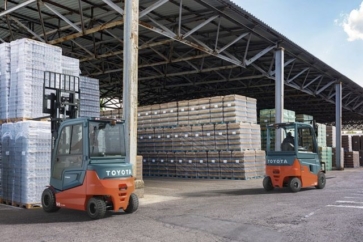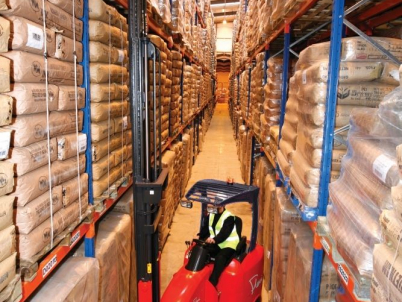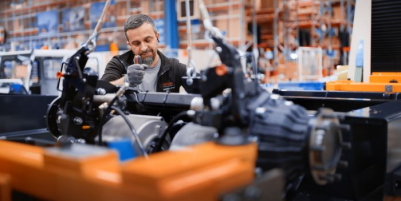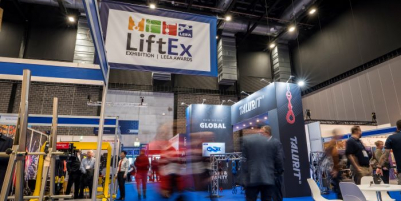-
GOPLASTICPALLETS.COM AND GOMI TEAM UP TO CREATEINNOVATIVE TECH FROM END-OF-LIFE PALLETS - 23 hours ago
-
Nulogy Introduces the Manufacturing Operating System - February 27, 2026
-
Bliss Direct scales to 300 daily orders and saves 25 hours per week with Forterro’s Orderwise ERP - February 25, 2026
-
Wootzwork raises $6.6M to bring predictability to offshore manufacturing - February 25, 2026
-
Rite-Hite unveils new range of hydraulic kits to upgrade and extend dock leveller performance - February 19, 2026
-
REWE and Cimcorp automate fresh supply chain for Berlin supermarkets and stores - February 19, 2026
-
Q1 – A recovery period or time to fix, switch and scale? - February 19, 2026
-
NULOGY’S SHOP FLOOR SOFTWARE TO POWER COMPLETE CO-PACKING’SOPERATIONS - February 13, 2026
-
Why lead generation depends upon good content - February 13, 2026
-
Wallapop and Albatross Sign Strategic Partnership to Bring Real-Time AI Discovery to the Future of Consumer-to-Consumer Commerce - February 12, 2026
As the UK government’s target of net-zero carbon emissions by 2050 approaches, many companies are looking for ways to make their operations as sustainable and environmentally friendly as possible. But switching from IC engine counterbalance trucks to electric powered, might not be the correct solution for all applications.
Leading forklift truck supplier, Toyota Material Handling UK, is encouraging any companies looking to renew their fleet, to make sure they have considered all fuel sources before making a purchasing decision, including exploring the use of biofuels to help reduce the carbon footprint of IC trucks.
“Europe’s forklift users have been migrating from IC engine trucks to battery electric machines on a huge scale for more than 20 years,” says Paul Bowers, Counterbalance Truck Specialist at Toyota Material Handling UK.
“In fact, the decline in demand for engine trucks has been so dramatic, that some lift truck manufacturers have stopped producing diesel and LPG-powered forklifts completely,” he adds.
But with the surge in electricity prices that followed the Covid crisis, and the invasion of Ukraine, pushing up the cost of recharging a truck battery, the substantial long-term financial benefits associated with replacing gas or diesel trucks with electric models have reduced.
Furthermore, there is growing concern that the continued reliance on fossil fuel in the generation process means electricity can be less environmentally friendly than many people think. In 2023, a third of the UK’s electricity supply still came from fossil fuel power.
Paul Bowers says: “The emergence of these issues surrounding the financial and environmental benefits of running electric trucks has led some companies to question whether swapping engine trucks for electric models remains the best strategy for them.”
He continues: “At Toyota we believe that despite higher electricity costs and the understandable frustration over the way electricity is produced, the business case for electric trucks can be compelling.
“But, while battery-powered trucks are still the optimum truck choice for many applications, they are not necessarily the best option for everyone.”
“Toyota is at the forefront of the evolution in alternative forklift fuels, including biofuel and hydrogen, and we aim to ensure that each Toyota client receives the most appropriate handling solution powered by the engine type and fuel source that is best suited to the requirements of their application.”
“For some clients ‘going green’ doesn’t automatically mean ‘going electric’. Because we offer, and service, a wide range of electric and engine-powered machines, Toyota truck users know they will receive expert advice to ensure that they receive the correct truck and fuel combination that meets their unique needs perfectly.”
To speak to one of our experts about which fuel source might be right for your fleet, please visit https://toyota-forklifts.co.uk/solutions/energy-solutions/

































